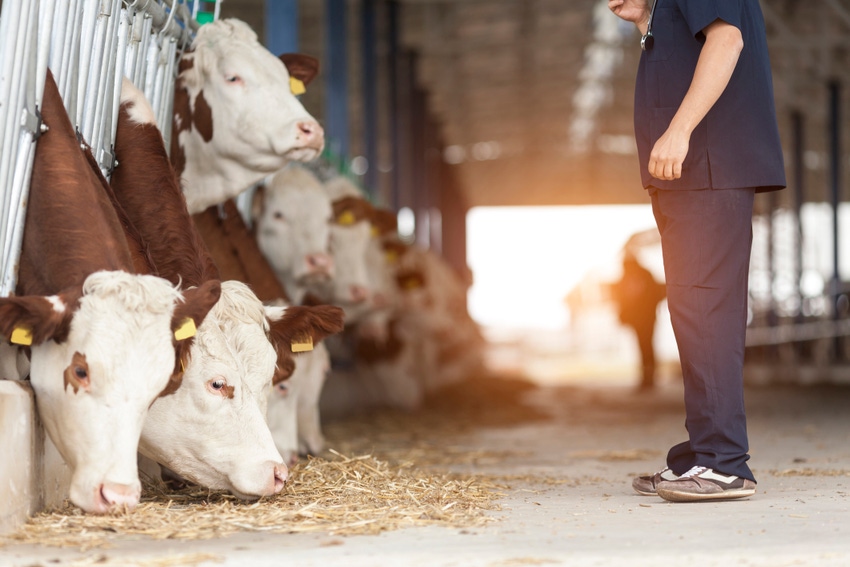Proposed 2+2 program to allow food animal veterinary students to spend first two years of vet curriculum on West Texas A&M campus.
September 9, 2019

Students from the Texas Panhandle won’t have to travel far from home to become veterinarians thanks to a new 2+2 program announced Sept. 5 by West Texas A&M (WTAMU) and Texas A&M universities.
According to the announcement, once all the necessary approvals have been obtained, veterinary students will be able to spend the first two years of their veterinary curriculum in Canyon, Texas, on the WTAMU campus in the Veterinary Education, Research & Outreach (VERO) facility.
During a press conference at the construction site of the $22 million VERO facility being built on the West Texas campus, WTAMU president Walter Wendler, Texas A&M president Michael Young and Texas A&M's Carl B. King dean of veterinary medicine Eleanor Green discussed the decade-long plan to bring Texas A&M’s doctor of veterinary medicine (DVM) program to WTAMU through the VERO initiative.
Beginning May 2020, veterinary students wanting to work in food animal or mixed animal medicine will have the option of completing a number of new clinical rotations in the Texas Panhandle as part of their yearlong fourth-year clinical rotations.
“Texas A&M University has been committed to extending its nationally ranked College of Veterinary Medicine & Biomedical Sciences to more effectively reach citizens across the expanse of Texas. An example of this is the VERO facility, funded through our Permanent University Fund,” Young said.
“The 2+2 program extends the reach of both Texas A&M and West Texas A&M, which is especially critical in an area that is home to the largest food animal production region in the nation,” he said. “Bringing excellent faculty here enhances the effectiveness of the college and opens new opportunities for students in the Texas Panhandle to become Aggie veterinarians.”
The Texas A&M College of Veterinary Medicine & Biomedical Sciences is in the process of seeking approval for the 2+2 program, with a plan to open the application process in the fall of 2020 and begin offering DVM classes at WTAMU for an initial cohort of 20 first- and second-year DVM students beginning in the fall of 2021, the announcement said.
Through the 2+2 program, veterinary students will be able to take the classes during their first two years of veterinary school through the VERO program, a partnership between WTAMU and the College of Veterinary Medicine & Biomedical Sciences, and then travel to Texas A&M in College Station, Texas, for their final two years.
“The new clinical rotations in the Texas Panhandle will offer immediate engagement and additional unique and readily applicable experiences for DVM students who want to pursue food animal and production medicine as a career path,” Green said.
“These clinical rotations will provide students the opportunity to spend time in rural-practice settings with both private practitioners and Texas A&M faculty members,” she said. “Rotations will offer a chance to gain experience in the most important aspects of the industry in West Texas, including rotations through feedlots, dairies and cow/calf, swine and other livestock operations. Beginning in the spring 2021 semester, food animal students will also have the opportunity to spend clinical rotations in the Texas Veterinary Medical Diagnostic Laboratory (TVMDL), located in Canyon, where they will learn about diagnostic laboratory medicine, which is of critical importance to production animal health.”
In preparation to begin offering classes at WTAMU, the two universities have begun putting to use funds appropriated by the Texas Legislature during its 86th session by announcing the hiring of additional faculty members to teach in the program at the VERO facility, the announcement said.
“Over the next two years, at nearly $2 million a year, eight to 10 faculty will be hired through the legislative appropriations process to support new graduate student assistantships in the 2+2 program at West Texas A&M University,” Wendler said.
You May Also Like



